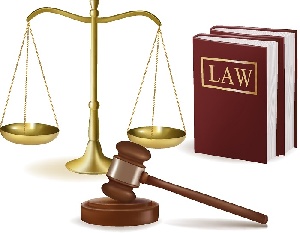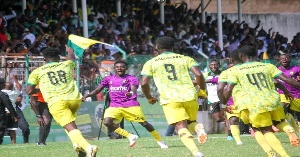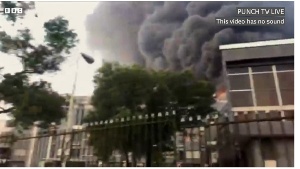- Home - News
- Elections 2024
- News Archive
- Crime & Punishment
- Politics
- Regional
- Editorial
- Health
- Ghanaians Abroad
- Tabloid
- Africa
- Religion
- Photo Archives
- Press Release
General News of Saturday, 26 April 2025
Source: www.ghanawebbers.com
Ghana Chief Justice Suspension: Nation Grapples with Separation of Powers
Suspension of Chief Justice Torkornoo: A Constitutional Dilemma in Ghana
The suspension of Chief Justice Gertrude Torkornoo has created a constitutional crisis in Ghana. President John Mahama ordered an investigation over allegations of abuse of office. This situation raises questions about power balance, judicial independence, and democratic integrity.
The President's Justification
Supporters of President Mahama cite three anonymous petitions as justification for his actions. Critics argue that this undermines Article 146 of the 1992 Constitution. This article outlines the impeachment process for a Chief Justice based on proven misbehavior or incapacity. The president claims there is a prima facie case requiring investigation. However, the lack of specific allegations casts doubt on the process.
Concerns Over Judicial Independence
Chief Justice Torkornoo's suspension has sparked debate about judicial independence. The judiciary serves as a crucial check on executive power in any democracy. Critics warn that this action resembles attempts to intimidate the judiciary, which could harm the rule of law in Ghana.
Political Reactions: NPP vs. NDC
The suspension has intensified political divisions in Ghana. The opposition New Patriotic Party (NPP) calls it an abuse of power and threatens protests. They express deep distrust towards the executive's motives and seek to protect judicial integrity.
In contrast, President Mahama's party, the National Democratic Congress (NDC), believes he acted within constitutional limits. This difference highlights how both parties interpret the constitution to suit their views.
Parliament's Role in Crisis Management
Ghana’s Parliament has remained largely silent during this crisis. The constitution assigns Parliament a role in removing a Chief Justice but offers little indication it will act as a check on executive power now. This silence raises concerns about separation of powers during national emergencies.
Fair Hearing Concerns for Supreme Court
Torkornoo’s suspension raises serious concerns regarding her rights and those of the Supreme Court. While removal procedures exist, due process must be guaranteed to maintain public confidence in the courts. Despite challenges, the Supreme Court remains vital for fair legal operations during this period.
Impact on Public Trust
This situation is more than just another political crisis for Ghanaians. It questions the health of democratic institutions and rule of law in Ghana. An impartial judiciary is essential to protect citizens' rights against executive abuse.
Any perceived weakening of judicial authority may erode public trust and foster cynicism towards democracy.
Ghana at a Crossroads
Ghana faces critical decisions regarding its future following Torkornoo’s investigation outcome. How this crisis unfolds will impact various issues like rule of law and institutional strength.
Politically exposed individuals must handle this case carefully to uphold or undermine legal standards in Ghana.
This crisis also tests Ghana’s democratic institutions against political pressures while emphasizing national unity amidst charged responses from all sides.
As a model democracy in West Africa, how Ghana resolves this issue will influence its regional leadership status moving forward.
Future Governance Considerations
The suspension may prompt discussions about constitutional reform or redefining power balances between branches of government. It presents an opportunity for deeper democracy and accountability within Ghanaian governance structures.
Moving forward requires commitment to dialogue, adherence to constitutional law, and strengthening democratic institutions for future generations’ benefit.
Balancing Perspectives on Suspension
It is crucial to recognize that this situation is complex with conflicting interpretations involved. While concerns over judicial independence are valid, constitutional mechanisms exist for addressing misconduct allegations against officials.
Although controversial, the ongoing probe follows legal processes outlined by Ghana’s constitution.
Accusations can undermine public trust; thus, conducting investigations transparently is vital for restoring faith in government institutions.
Ensuring fairness throughout will help navigate differing interpretations while maintaining respect for legal implications involved.











